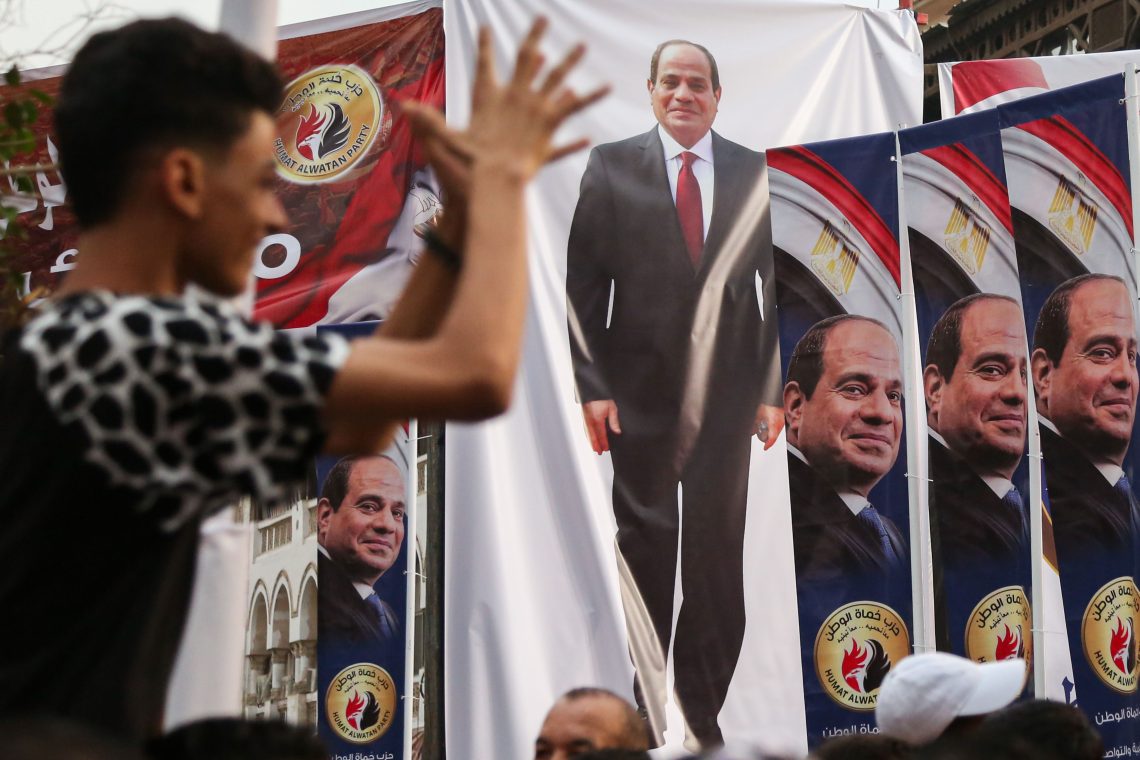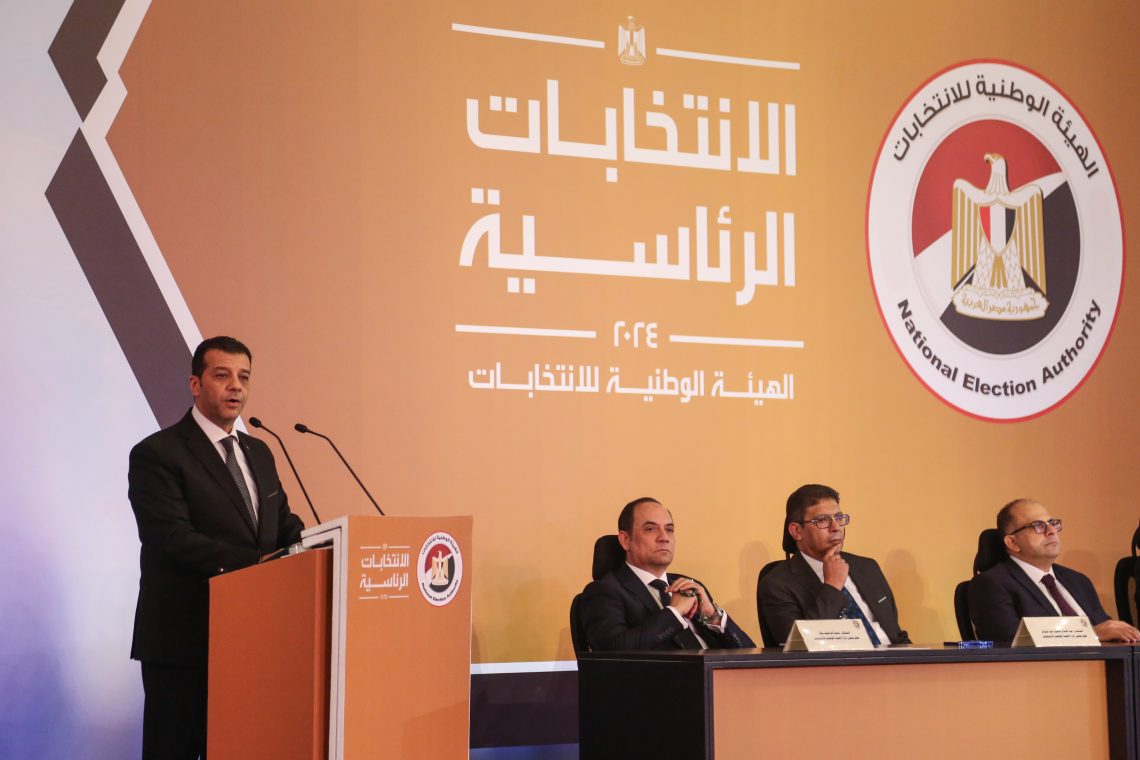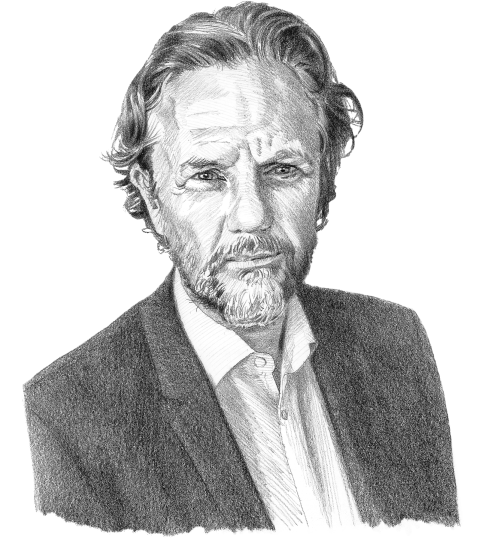Soul-searching in Egypt
The National Dialogue initiative of Egypt’s Abdel-Fattah El-Sisi may help revive the economy, but is unlikely to resolve structural issues around poverty, housing and corruption.

In a nutshell
- Egypt’s National Dialogue is enabling serious debate
- The regime continues to face criticism over human rights
- El-Sisi risks public backlash if the initiative fails
The National Dialogue initiative launched by Egyptian President Abdel-Fattah El-Sisi this past May is a bet on the country’s future. Amid economic crisis, rising popular discontent and upcoming presidential elections, Egypt’s ruler announced the project over a year ago. The government says it has opened conversations between political actors, the state and members of civil society in order to build a “new republic.”
The initiative, greeted with skepticism by the opposition, has prompted Cairo to release some 1,000 prisoners as a gesture of goodwill. Debates are taking place at the Madinet Nasr conference center north of the capital, and are chaired by Diaa Rashwan, a prominent reporter and head of the Egyptian Journalists’ Syndicate. Several committees are meeting regularly to discuss political, economic and social issues.
Talks have been open and straightforward, covering sensitive issues around the exercise of state power. Topics have included a new electoral law to be adopted for the next parliamentary elections in 2025. The current system, known as “closed list,” allows the winning party in a constituency to take all seats. The Egyptian Social Democratic Party has called the system unfair, and various political actors have called for a move to proportional representation.
The National Dialogue is part of a broader political agenda, and it would be simplistic to see it merely as a publicity stunt.
Ongoing economic debates are exposing realities that contrast with reports from Egyptian business circles, which are dominated by army officials. Mervat El-Kassan, a member of the House of Representatives’ budget committee, has detailed inefficiencies in the Egyptian tax administration. Some $10 billion in taxes remain uncollected by the state, a third of which is considered totally lost. This is a considerable sum for Egypt, where salaries are as low as $97 per month and one third of the population is poor.
Sensitive issues such as human rights are not excluded from the National Dialogue. Successive regimes in Cairo have been wary of humanitarian organizations that work closely with civil society, suspecting they may be colluding with the opposition. Nongovernmental organizations (NGOs) complain of targeted police pressure, as exemplified by the recent sentencing of human rights activist Patrick George Zaki to three years in prison for supposedly spreading “false information.” The board managing the National Dialogue took notice of his case and asked for a presidential pardon; in a show of appeasement, Mr. El-Sisi agreed.
The National Dialogue aims to improve relations between the regime and the humanitarian sector. Important words have been spoken during the debates, including from Khaled Kandil – deputy leader of the Wafd, one of Egypt’s oldest parties – who said that NGOs not only have a positive role to play, but must be encouraged to do so.
Read more by Pierre Boussel
Middle East groups learn lessons from the Ukraine War
Prison reform
In today’s Egyptian society, where everything seems to be ineffective and corrupt, there are now real attempts at change. One can judge their ultimate effectiveness or the political calculations of those involved, but it cannot be denied that there is a desire for reform.
Some of the most sensitive issues were at least sketched out in the Dialogue, if not addressed, including the conditions for Egyptian prisoners. Beginning with the crackdown by former President Gamal Abdel Nasser on the Muslim Brotherhood in the 1960s, this has long been a thorn in the side of Egyptian diplomacy. Cairo is regularly called upon to explain its lack of transparency – the most recently updated figures from the prison administration are from the 1990s – to which authorities respond by accusing NGOs of bias.
Advocacy organizations continue to criticize the regime for its harsh treatment of detainees, arguing that new prisons will not solve the problem.
President El-Sisi launched a national human rights strategy in September 2021, which includes a plan to modernize prison facilities. According to the Arab Human Rights Information Network, 28 new prisons holding approximately 120,000 inmates have reportedly been built since he came to power. These figures do not include detention centers under the Ministry of Interior’s National Security Directorate.
When Minister of the Interior Mahmoud Tawfik announced the construction of six new penitentiaries, he cited cell overcrowding and a need to improve living conditions. However, advocacy organizations continue to criticize the regime for its harsh treatment of detainees, arguing that new prisons will not solve the problem.
Political gamble
President El-Sisi’s initiative is part of a broader political agenda, and it would be simplistic to see the National Dialogue merely as a publicity stunt. Early presidential elections scheduled for December 10-12 will serve as a test. Naturally, the success or failure of the initiative will influence how voters cast their ballots. The president makes routine visits to the Madinet Nasr complex to monitor the progress of debates. He is always careful to leave his suit and tie at the office, appearing relaxed and informally dressed in a bid to win over voters.
The National Dialogue is a bold gamble. Mr. El-Sisi is exposing himself to comments from the opposition that directly confront him, particularly the absence of consultation in presidential decision-making on issues of national concern. Political groupings like the leftist Socialist Popular Alliance Party, the Dostour Party and the Al-Karama nationalists are criticizing the unilateral exercise of power. Even if they agree with decisions like the request for financial support from the International Monetary Fund, the opposition would prefer them to result from joint deliberation.
In response, the regime blames Egypt’s aging institutions, and points to the National Dialogue as a means of remedying the status quo. This commitment raises real hopes, and President El-Sisi will pay a political price if he does not deliver on them.
Muslim Brotherhood
The president’s initiative comes 10 years after the Muslim Brotherhood’s disastrous experience in government (2012-2013). The Islamist movement, now banned, is accused by the government of promoting a terrorist ideology.
The authorities in Cairo are worried that the movement is not dead, despite its own failures, regime arrests and political bans, and divisions between the Egyptian Shura Council and the General Shura Council of the Brotherhood. The group continues to challenge the government; its website, Ikhwan Online, relentlessly denounces the country’s economic situation. It persists in promoting the idea of “rupture” devised by Sayyid Qutb – a mid-20th century Brotherhood leader who modernized jihadism, infusing it with a revolutionary drive to break up the state.
At times, the resilience of the Muslim Brotherhood seems unbreakable. Anchored in the middle class and among the poorest, the movement seeks to advance tajdid al-khitab al-dini (a renewal of religious discourse), an old Brotherhood concept of constantly updating the divine message to present realities. More worryingly for Mr. El-Sisi, the Brotherhood also thrives on repression by Egyptian police. Victimization is their tool of propaganda, making the task facing the regime more complex.

Authorities will try to walk the line between severity and “excessive” severity. The same applies to the channels of dialogue that have been opened to oxygenate civil society. Cairo will try to prevent this openness from going too far for its purposes; the Muslim Brotherhood, now divided, would not miss a chance to restore its cohesion and return to the political scene.
Signs that security pressure is easing are small but real. A Cairo court recently lifted arrest warrants for 146 members of the Muslim Brotherhood, individuals of no great significance to the group but who would normally have been severely punished. The press has called this the first such move since 2013; time will tell whether it represents an inflection point.
Scenarios
More likely: Modest change
In the most likely scenario, President El-Sisi completes the National Dialogue as planned. His privatization program partially revives the economy but fails to resolve the deeper problems around endemic poverty, healthcare and access to housing. Egypt’s leader is reelected in 2024 but continues to face pressure from the Muslim Brotherhood, which remains active despite being banned.
Opening up the economy to foreign investors would require clarifying tenders and financial transfers as part of the government’s anti-corruption program, part of the Vision 2030 plan. But this will not be enough to eradicate decades of corrupt behavior within companies themselves, between employees, suppliers, distributors and so on. This is the main challenge, because this is where the waste of corporate cash – millions of pounds exchanged every day, continuously in small amounts – is found.
In Egypt, as elsewhere, corruption creates a parallel system that obeys its own laws and unspoken rules. It may not truly fight poverty, but it helps keep the poor from starving in the streets. Egypt has long been comfortable with this fragile balance. How long can it last? President El-Sisi is reluctant to tackle this highly sensitive, real economy head on, as doing so would sow the seeds of social destabilization.
Less likely: Deterioration
In a second scenario, the reelection of President El-Sisi takes place in a climate of social tension, exacerbated by disappointment with the National Dialogue. Promises are not kept, and Egypt faces the old demons of division between rich and poor, between urban centers and a countryside struggling with drought. The political climate hampers the crucial tourism industry, which is still struggling to return to its heyday.
For industry-specific scenarios and bespoke geopolitical intelligence, contact us and we will provide you with more information about our advisory services.









